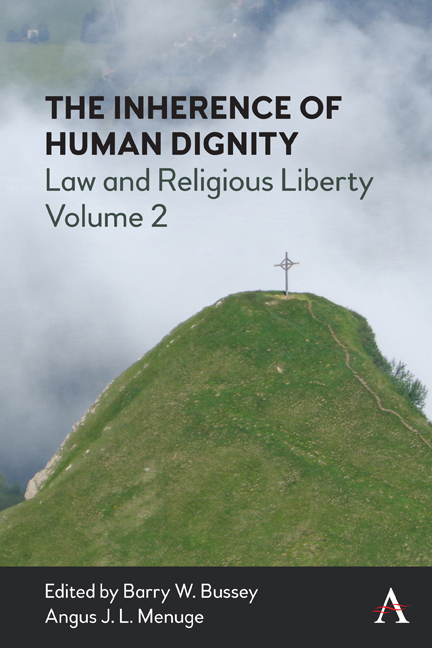Chapter Three - Human Dignity As An Explicit Constitutional Norm
Published online by Cambridge University Press: 24 February 2022
Summary
The theme of human dignity is essential for the comprehension of contemporary law. Human dignity is an indispensable principle for the interpretation of national and international law, awakening a series of discussions on topics ranging from its meaning to the most effective instruments for its protection. The present chapter aims to investigate a very particular topic, which is the effect of specifically provisioning human dignity as a fundamental principle in a constitution, such as Germany's Basic Law and Brazil’s Constitution. The current analysis shall focus on the following subjects. Primarily, the chapter will examine the two most common concepts related to human dignity: principles and fundamental rights. These two definitions, although incompatible, are the most common theoretical concepts that allow interpretation of human dignity as a right. Second, the chapter examines the treatment human dignity has received in Germany, Brazil, the United States and Great Britain, with the first two countries having it as an explicit constitutional norm and the last two not. This section concludes that the explicit protection of human dignity in a constitution gives it a greater weight, or strength. Last, we argue human dignity also functions as an interpretative criterion for all the other provisions of a constitution, given its broad implications.
Introduction
Changes in the notion of human dignity have turned this notion into one of the central themes of contemporary law. Worldwide, appeals to human dignity emerged in response to violent episodes, such as World Wars I and II. Its focus, however, was not simply protecting people from shootings and explosions, but also from the degradation and humiliation caused by dictatorships and other authoritarian regimes. In short, human dignity is the term most countries’ laws used to answer the call for a stronger protection of their own people. This means that human dignity is currently held as one of the most important rights in systems of law, with functions that surpass a guarantee, thus having a normative and interpretative role.
At the same time, human dignity was granted the status of a fundamental right in many constitutions. A fundamental right is, in short, a right with higher status that requires more attention from the state and also from private parties. Human dignity is not the first fundamental right.
- Type
- Chapter
- Information
- The Inherence of Human DignityLaw and Religious Liberty, Volume 2, pp. 45 - 54Publisher: Anthem PressPrint publication year: 2021



